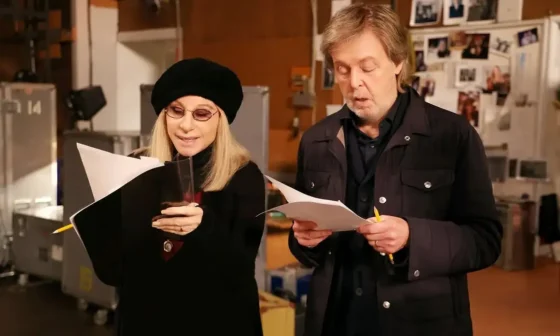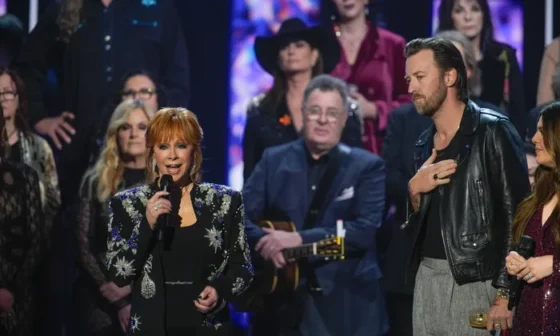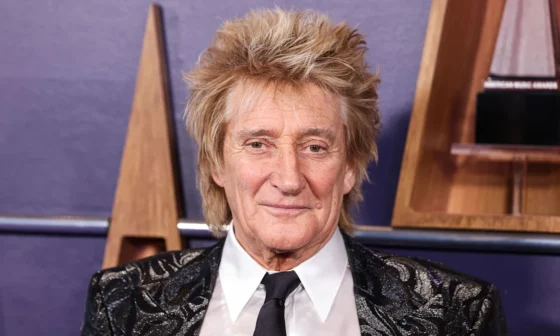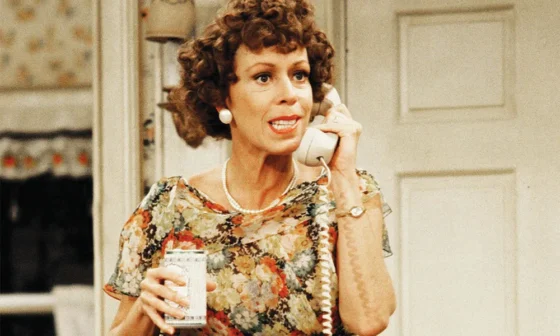The King’s Final Curtain: Inside Elvis Presley’s Last Performance
On June 26, 1977, the King of Rock ‘n’ Roll took the stage one final time. Just seven weeks later, he was gone.
Elvis Presley — the man who revolutionized music, electrified crowds with his charisma, and danced his way into history — gave his last concert at Market Square Arena in Indianapolis. At 42, his health was visibly failing, but the voice, the presence, and the magic were still there.
A Legend, Fading But Fierce
Elvis had been battling personal struggles, health issues, and the weight of fame. His once-sleek frame had changed, and performing was no longer effortless. Still, when he walked onstage in his iconic white jumpsuit and boots, the crowd erupted. For over an hour, the King gave fans one last taste of the glory days.
“It didn’t stop him from giving a performance in true Presley style,” wrote Rita Rose of The Indianapolis Star. “Everything he did created mass hysteria, especially his leg jerks.”
The Final Show
The setlist that night was a journey through his incredible career — from early hits like “Jailhouse Rock” and “Hound Dog,” to tender ballads like “Love Me” and “It’s Now or Never.” He opened with “See See Rider” and kept the energy high, mixing gospel, rock, and soul.
But it was the final song — one he often used to close out shows — that would become especially poignant.
“Can’t Help Falling in Love” — A Farewell in Song
Elvis ended his final concert with “Can’t Help Falling in Love,” a 1961 classic from Blue Hawaii that became one of his most beloved tracks. As he sang those final lines and left the stage, no one knew it would be the last time they’d see the King perform live.
The moment became immortal — the gentle goodbye of a man who had given everything to his music, his fans, and the world.
Behind the Curtain: A Career in Decline and Rebirth
In the late ‘60s, after returning from the Army and years in Hollywood, Elvis’s music career was at a crossroads. But his 1968 TV comeback special lit a fire under his legacy. The moment, now featured in the 2024 Netflix documentary Return of the King: The Fall and Rise of Elvis Presley, reminded the world why Elvis was more than just a cultural icon — he was a force of nature.
Still, the 1970s brought mounting challenges. A divorce from Priscilla in 1972, a grueling tour schedule, and prescription drug issues took their toll. Despite this, Elvis never stopped performing — sometimes to his own detriment.

“Those last shows were not the most memorable,” Priscilla later admitted. “Sometimes he didn’t get through a song … They’re just hard to watch.”
But not everyone saw it that way.
“We’ve seen him at least 50 times,” fan Michelle Klein told The Indianapolis Star. “He hasn’t changed a bit. He’s better looking now than he ever was.”
Legacy That Won’t Quit
Elvis Presley remains a towering figure in music history. With over a billion records sold and timeless songs still in rotation, his influence is everywhere — in artists, in fashion, and in pop culture.
His story hasn’t faded. In fact, it’s burned even brighter in recent years. Between the 2022 Oscar-nominated Elvis film, Sofia Coppola’s 2023 Priscilla, and the 2024 Netflix documentary, new generations are rediscovering the man behind the legend.
Every August 16 — the anniversary of his death — thousands of fans gather at Graceland for a candlelight vigil, proving that the King still reigns in hearts around the world.
The Beat Goes On
Elvis Presley’s final concert wasn’t just the end of a tour — it was the closing chapter of a life that changed music forever. He may have left the building, but his voice, his spirit, and his impact continue to echo across generations.
He sang, “Some things are meant to be.” And Elvis Presley was meant to be unforgettable.







